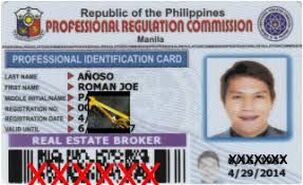Requirements to Transfer Property Title to Heirs: Land, House & Lot, or Condo If you received an inheritance from a deceased parent or relative, essential paperwork is required to transfer the property title to your name or divide it with other heirs. But what are the requirements to transfer an inherited property title?
To learn more about it, keep reading as we share the 7 documents you'll need to transfer an inherited property title, whether a land, condo, or house and lot. 1. Deed of Extrajudicial Settlement of Estate The heir should undergo the Extrajudicial Settlement of Estate if the deceased relative fails to make a Last Will and Testament. The Deed of Extrajudicial Settlement of Estate is a legal document issued by a licensed lawyer, which contains the heirs and the deceased owner's name of the inherited property title. You can ask a licensed lawyer to make an Extrajudicial Settlement and get it notarized. Also, this document contains the details of the properties and their distribution to the heirs. 2. Affidavit of Publication Another document you will need to transfer an inherited property title is the Affidavit of Publication. You can get this document from publication companies, such as newspapers. To secure an Affidavit of Publication, you should present the Extrajudicial Settlement issued by a licensed lawyer. 3. Certificate of Title To successfully transfer your inheritance, you should also prepare the Certificate of Title or the original certificate of the properties. It can be an original Certificate of Title, Transfer Certificate of Title, or Condominium Certificate of Title. 4. Tax Declaration There are two types of Tax Declaration: the Tax Declaration of Land and the Tax Declaration of the Building or House. If the lot you're inheriting doesn't have a building, house, or structure, you should obtain a Certificate of No Improvement. Meanwhile, you can secure the Tax Declaration of the inherited property title at the Assessor's Office. 5. Certificate of Non-Delinquency The Certificate of Non-Delinquency is a document proving that the inherited property title you’re transferring has no debt or pending dues on Real Property Tax. You can secure this document from the City or Municipal Treasurer’s Office. 6. Transfer Tax Clearance Aside from that, secure a Transfer Tax Clearance from the City or Municipal Treasurer's Office. This tax applies during a sale, barter, or any form of transfer of real property. The Transfer Tax Clearance is payable at the Treasurer's Office, where the property is located. 7. Certificate Authorizing Registration (CAR) Lastly, you should obtain a Certificate Authorizing Registration or CAR from the Bureau of Internal Revenue (BIR). Here are the additional requirements to get a CAR from BIR:
RemindersNote that these requirements apply to Real Property. If dividing a personal property, you'll also need a Bond Certificate from an insurance company accredited by the Registry of Deeds. Furthermore, the stated requirements above apply to the following conditions:
Nonetheless, inform the court if one of the heirs doesn't cooperate. Allow the court to distribute the property as per law. Lastly, the taxes may incur service charges and interest per annum. Thus, ensure to pay the estate tax to avoid unnecessary fees.
0 Comments
Leave a Reply. |
Archives
July 2024
Categories
All
|
Hi! Welcome to our website. Having an agent/broker on your real estate search is a gift because with or without them the price of the property is always the same. They give you FREE SERVICE and only pure service. On your part, everything is to gain. Claim your gift now! :)
meet your Real estate Broker Partner:
Roman Joe Anoso, RN, REB
Real estate Broker PRC license number: 19887
HLURB registration number: CAR-B-05/21-029
HLURB registration number: CAR-B-05/21-029
Roman joe Anoso is a multi-awarded real estate broker, consistent Top #1 for 8 years to date, being recognized by the following companies:
Suntrust Properties, Inc.
- Overall Nationwide Top # 1 Real estate broker year 2018:
Vista Residences, Inc.
- Overall Nationwide Top # 1 Real estate broker year 2017:
Goshen Land capital, inc.
- Overall Nationwide Top # 1 Real estate broker year 2011 to 2016:
Suntrust Properties, Inc.
- Overall Nationwide Top # 1 Real estate broker year 2018:
Vista Residences, Inc.
- Overall Nationwide Top # 1 Real estate broker year 2017:
Goshen Land capital, inc.
- Overall Nationwide Top # 1 Real estate broker year 2011 to 2016:
office address: REALS Corporation, Barangay Dontogan, Baguio city, 2600
personal: +63917-5645-863
viber/whatsapp: +63917-5645-863
add him on facebook (CLICK HERE)
office landline: 074-442-2353 (for clearer conversation)
email: [email protected]
skype: romankat2
website: www.realestatebaguio.com
personal: +63917-5645-863
viber/whatsapp: +63917-5645-863
add him on facebook (CLICK HERE)
office landline: 074-442-2353 (for clearer conversation)
email: [email protected]
skype: romankat2
website: www.realestatebaguio.com
official Real Estate Brokerage Website of REALS Corporation
for our affiliate program CLICK HERE
for our affiliate program CLICK HERE

 RSS Feed
RSS Feed




